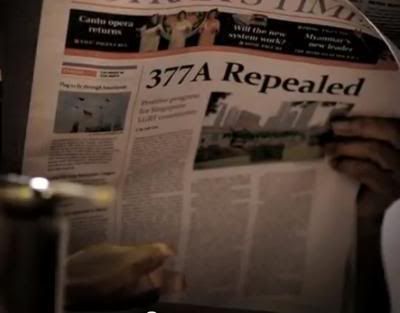..the non-empirical (“armchair”) character of philosophical investigation—its focus on conceptual truth—is in tension with [the goal of discovering actual truth]. That’s because our concepts exhibit a highly theory-resistant complexity and variability. They evolved, not for the sake of science and its objectives, but rather in order to cater to the interacting contingencies of our nature, our culture, our environment, our communicative needs and our other purposes.
I think I've had just about enough.
Often, people believe lies because they like the sound of them. It has been said that our minds are hardwired to look for patterns, even where there are none. In addition, we lock on to some of these patterns and superimpose them on things that we subsequently see. We let preconceived notions determine how we experience the world.
Certainly, such phenomena are not necessarily bad; to some extent they may even be important in helping us make sense of the world. At the same time, however, they lead us to all kinds of falsehood by making us insensitive to our actual experiences. They impose a mental processing system by which we make sense of and even twist these experiences to suit our preconceived notions.
The genius philosopher Wittgenstein devoted part of his life's work to quashing traditional philosophical thinking that falls into such a pattern. To quote a recent New York Times article on the subject:
Letting premade concepts filter our experience can inure us to authentic experiencing, compelling us into thinking that our experiences conform to those concepts. I believe that this is what makes people automatically assume that there is a god and that certain experiences are divine and must have had certain effects. It's what makes people believe in miracles that can happen any time they want.
The scientific-minded may just cite the lack of conclusive evidence for the occurrence of miracles, but this objection goes beyond that. It highlights how we, fundamentally, look at the world around us in an inauthentic way and why we are capable of seizing upon lies and integrating them into our reality. It demystifies what is at once an act of cosmic arrogance and wilful ignorance.
And the most egregious cases of this act are what I just can't stand anymore.
I was asked to write a piece on a new marketing concept called the 'multiplier' as an assessment for a job. What I wrote was probably not what they were looking for. Nevertheless, my scepticism towards it is the only worthwhile thing I had to add.
Here, I reproduce the piece in full.
---
As outlined by McCracken in a blog post, ‘multipliers' seem to not simply be a new breed of consumers but a category of people that supplants them. 'Multipliers' are not consumers in the traditional sense of the word. Creating an opposition between the two terms, McCracken contends that unlike with consumers, whose responses to products are "an end state", producers "depend on [‘multipliers’] to complete the work".
'Multiplier', however, cannot be a good definition for today's consumer as it seems to represent an attempt at looking past something that we as consumers will probably never leave behind—the act of consumption, with all its less-than-noble implications (or, in McCracken’s words, its “mischievous and sometimes malevolent intent”).
The idea of consumption is closely tied to the consumer-being, the Subject, and therefore also to his physical self. 'Multiplication' is orientated towards the Object, which is either a product or its value. Therefore, there are two inherent dangers in using the latter term: The first is that the term 'multiplier' objectifies the highly anthropocentric act of consumption and takes it entirely into the abstract realm of value, thereby inverting the relationship between Subject and Object; the second is that in abstracting the act of consumption, we would forget the physical and to some extent destructive nature of consumption. These problems are explained in turn below.
The Subject-orientation of consumption means that although consumers may sometimes build on a product they buy, in reality they do not ultimately do so to engage in the act of value creation. Consumers make consumption decisions according to their desires and goals. This means that even where they add value to products, they do so for their own purposes, which may or may not be to the producers’ benefit. For example, player modification of PC games for the benefit of other players is good for producers where it drives sales for the base products. Conversely, fan-made subtitles (fan subs) of Japanese animation often come with the original products for free, and thus many viewers, for whom the subs are a crucial access point to the products, need not pay for the products at all. These details would likely be lost with the term ‘multiplier’ or ‘multiplication’.
The second danger in using the term 'multiplier' is that we would risk forgetting the nature of the beast—of the physical, animalistic and often irrational impulse of consumption. 'Multiplication' makes it sound like a pure act of creation and would therefore belie the endless, insatiable and destructive striving that has come to be implied by the term 'consumption'. And thus we may forget the real costs that consumption imposes, whether or not any value was added in the process. This is not just in the context of finite resources; it is also relevant when the Object does gain mastery over the Subject, such as when the Diderot Effect (another area of McCracken’s work) takes hold and a new possession induces an avalanche of consumption.
All of these are nuances contained within the term ‘consumer’ that I do not see in the term ‘multiplier’. Making the latter the definition of today’s consumer would therefore risk sounding like a cynical marketing exercise that conveniently glosses over them. Caveat emptor.
Luck is superstition—at least when it suggests the existence of a god in the machine, a capricious supernatural force that determines one's fortunes. That said, luck could be a descriptive term, merely used in reference to circumstances that are perceived to be out of one's control. The first kind of luck, a prescriptive understanding of luck, should rationally be relegated to the level of superstition.
But what about the work of providence, or what people often call blessings? How much stock can we really put into that concept in our everyday lives?
It is convenient and perhaps sometimes truly beneficial to claim that, yes, one is specifically blessed in a particular matter. But here too a distinction needs to be made between a descriptive use of the word and a prescriptive one. A descriptive use could, for example, be meant to express gratitude. A prescriptive use of it would, however, go further in implicitly claiming, in a definitive way, that one is indeed personally helped by a higher power in a particular instance.
Such a claim probably stems from a desire to feel that one's every want and need is taken care of by a higher power, or that one has direct access to or a favour-based personal relationship with a deity.
I find such notions as presumptuous or childish as they sound. Our desires don't simply translate into reality. And if we accept that a higher power exists, and that this power deserves our devotion, the appropriate attitude would be subordinate our needs and wants to its will. Even trying to think up a win-win scenario strikes me as being arrogant and wrong.
However, just as many believe in luck as a metaphysical force, so do many believers subscribe to the idea that God blesses them in every human and banal matter that they are concerned with. I think that is a very simplistic expression of faith, one that resembles young children's belief in Santa Claus or in their parents' unfailing ability to grant their every wish. I think we need to grow up from such notions and learn to find faith that does not need constant reassurance.
I don't know if this has specifically been addressed by someone before, but one dimension to the existential problem is banality of existence. There is a kind of abstract meaninglessness that people like Camus have written about, but there's also a very practical sense of the banality that most of us are, from time to time, conscious of. In short: How do we live a life where we know that the world is so full wrongs and that we are, by and large, powerless to change it?
We live our lives day to day seeking our own happiness as though it carries a deep meaning. We suffer for the most trivial things, and we are put through all kinds of absurdity in order to buy ourselves some comfort in which we can pass our days. We lose, we gain; and after time has had its way, every joy or pain loses its significance. We live in bubbles, painfully focused on the minutiae of our lives but often unaware of the larger things going on around us.
And for our entertainment, we often watch others pass the same banal lives—characters on screens or on pages looking for happiness and revelling in frivolity. Or if we seek an escape, a fantasy, we try to lose ourselves in a world where individuals have power and could shape the world around them; and sometimes this only reminds us of just how unremarkable our own existence is.
Then there's religion or faith. But all it tells us is that, yes, we're powerless, that ultimately we need to depend on a greater power. It only gives an answer to the problem by affirming it and denying that we there is anything we can do on our own.
So how do we do it? How do most of us go about living our daily lives willy-nilly? It's strange, even fascinating.
Perhaps that is the miracle of life.
Gay rights: It's not a religious question
Posted by
moses
@
18:24
•
civil rights,
freedom,
gay rights,
politics,
religion,
secularism
•
0
comments
![]()
Watching Spielberg's Lincoln feels at first like watching a distant, momentous time–a time from which our banal modern lives with its host of "First World problems" are far removed.
But then I realised that there are still freedoms to fight for today, and in Singapore some of those are gay rights. There is still a law against homosexuality in Singapore which stands for an unwarranted intrusion of the state into people's private lives. And there is still significant support for that law, especially among the religious. To put it simply, these people are wrong; I'll tell you why.
Firstly, those who support the law are unable to give good evidence that the repeal of such a law would negatively affect society in any significant way. Why would it deprive any groups of rights when it actually helps a currently marginalised group? Do people have a right to ban something they don't like? And how would it destroy the family structure? Would birth rates decline significantly if homosexuality is no longer illegal? Or would it simply cause more people to lead immoral lives?
This last question is really the crux of the matter–those people have a moral objection to homosexuality. That's alright, but what makes homosexuality so special that they want to prohibit it by law? Why do they not seek to ban other sins such as gambling, prostitution or binge drinking with the same vigour and vociferousness?
Conservatives tend to put some stock in the ideas of personal responsibility and self-control. And where sins do not cause direct harm to others, they don't like to advocate such sweeping legal interventions as outright bans. However, the same position is not adopted towards homosexuality, and thus their opinion on its legality seems out of character and even irrational.
Moreover, it's foolish to insist on imposing your faith-based moral code on the legal system. Far from being a dirty word, the notion of secularism should, in law and in politics, be upheld by religious groups. Pluralism is bound up with secularism, for without the latter, a dominant religious group could persecute other groups. For example, Islamic countries may try to forbid or restrict Christian worship. A non-secular system would only benefit whichever group happens to be the most powerful. Thus, and thinking about fellow believers who are persecuted in other parts of the world, how could the religious fail to uphold secularism?
The bottom line is religion should not be brought into the debate about the law. At the same time, the non-religious arguments for keeping the ban have so far been unable to go beyond baseless talking points and wild theories about the consequences the law's repeal. Without good arguments backed by solid empirical evidence, there is simply no case for criminalising a whole swath of the population over their private choices.
Recently Gallup did a study that indicates Singaporeans are among the most, if not the most, emotionless or inexpressive people in the world. The reactions from some people were predictable.
Immediately there were people who contended that the survey questions are subjective, which only seems like a puerile stock response. How much interpretation is needed for questions like "Did you smile or laugh a lot yesterday?" Do Singaporeans understand words like "smile or laugh" differently? Besides, although people's perceptions of happiness or other feelings are indeed subjective, subjectivity is not the issue here—whatever people might think emotions like happiness mean, the study simply wants to know if they feel them or not.
A critique of the methodology needs to be better than that. And because the results are empirical, you can't disagree with them (the plural of your anecdote is not data, by the way). You could disagree with the interpretation of the results, but there too the critics have mostly failed to impress. This brings us to another irony in the indignant responses that seek to paint Singaporean culture as different and therefore not assessable from "subjective" 'Western' perspectives.
This group of responders seems to be asserting themselves as the voice of objectivity and of calm unemotional logic. Yet they fail to see their own hilariously inaccurate assumptions and the contradictions in their position. This is true in at least two respects:
1. "Asian Values" are a stereotypical fantasy
There are clearly some cultural differences between, say, the USA and Singapore. But simply citing "Asian values" is far from giving a good description of these differences. For one, it is widely recognised that Singaporeans are very materialistic and often egotistical in their pursuit of wealth. How does that jibe with the supposedly communal-spirited Asian Values that are now used to explain why Singaporeans are less emotionally expressive as individuals?
Popular conceptions of Asian Values are incoherent and not matched by the reality in our society. This calls into question the whole concept of a monolithic set of Asian Values itself.
2. Your government wants to retain talent, not drive them out
Many of those arguing against the study seem to be people who are patriotic and fiercely protective of Singapore's image. These are often the same people who, going by what they say, like to insist that Singapore does it better than most other places. And because of that, they tend to agree that the ruling party has done the right thing and therefore that we should all be more grateful to the government and the country instead of being critical. Don't like it? Then pack your bags and leave.
Well, that demand—that people who complain, both foreigners and citizens, should leave the country—is not one that the ruling party is making. In fact, evidence points to the contrary: They want to attract and retain talent to keep Singapore economically competitive. So for all your insistence that the government and the country are on the right track on the important things, you seem to be advocating doing something different here. What gives?
It might seem that the study implies we're a race of robotic worker bees that are emotionless or at least inexpressive. But it turns out that we're robots without a good sense of logic either. So that begs the question: What are we really good at?
I walk with the wind against my face, blowing frigid and fierce, promising a cold day ahead. This is of course typical of the repertoire of autumn weather in London: wind, rain and fog–and they have all made an appearance throughout the week.
Entering the Barbican Centre, I hurriedly join a friend in the queue that has steadily been building up even before the Rain Room opens. The sight of the growing line begs the question: Why would people want to visit an installation about rain when they experience rain all the time in this city?
Over an hour later, finally stepping inside, the darkened space that is the Curve Gallery feels warm enough–the first difference between experiencing rain in here and experiencing it outside during this season. But the biggest and most important difference between the two experiences is the magic of the installation itself: unlike in the outside world, walking under the rain in here will not get you wet.
There are, however, a few conditions. Firstly, you must take your steps slowly to allow your position to be properly detected. Secondly, anything extending too far from your body is not protected–stretch your arms out far enough and they will get wet.
These caveats hint at the inner technical workings behind the Rain Room's magic; and they may perhaps take a little of the sense of wonder away.
Still, waiting just outside the torrential box, the excitement is palpable. There is something about the field blanketed in drops of water, glinting in the harsh white light that shines across the space, that is fascinating; and, chances are, you feel more than ready to give it a try.
Our turn comes and we step into the rain zone carefully, a dry space forming around us. Looking up, I can see circles where the downpour has been stopped above me, and they seem a little wide, perhaps slightly too wide for the experience to be as thrilling as I imagined.
Nonetheless, the curtain of rain around me, appearing misty in the light that illuminates it, seems as though it encloses me in a kind of surreal personal sanctum, surrounded by a persistent yet ephemeral shroud. And the experience is sublime. The world outside one's immediate vicinity seems further away but still eminently reachable–it's as though one has withdrawn tentatively into a serene and reflective place, a mandala, observing the world, samsara, from a mediated distance. It reminds me of the many times I have stood under an umbrella in tropical rain, the water mere inches from my body all around; except that here I can remain completely dry.
And that seems key to the installation's appeal. Rain in the outside world often presents itself as an obstacle, an inconvenience, a source of discomfort; in here, one is free to experience and contemplate rain without having to relate it to one's immediate needs and desires. It is the quintessential Schopenhauerian aesthetic experience.
And that is why to me, despite its rather technical and not quite wondrous nature (partly due its technical limitations), the Rain Room is art. You can't quite get the same experience anywhere else.






